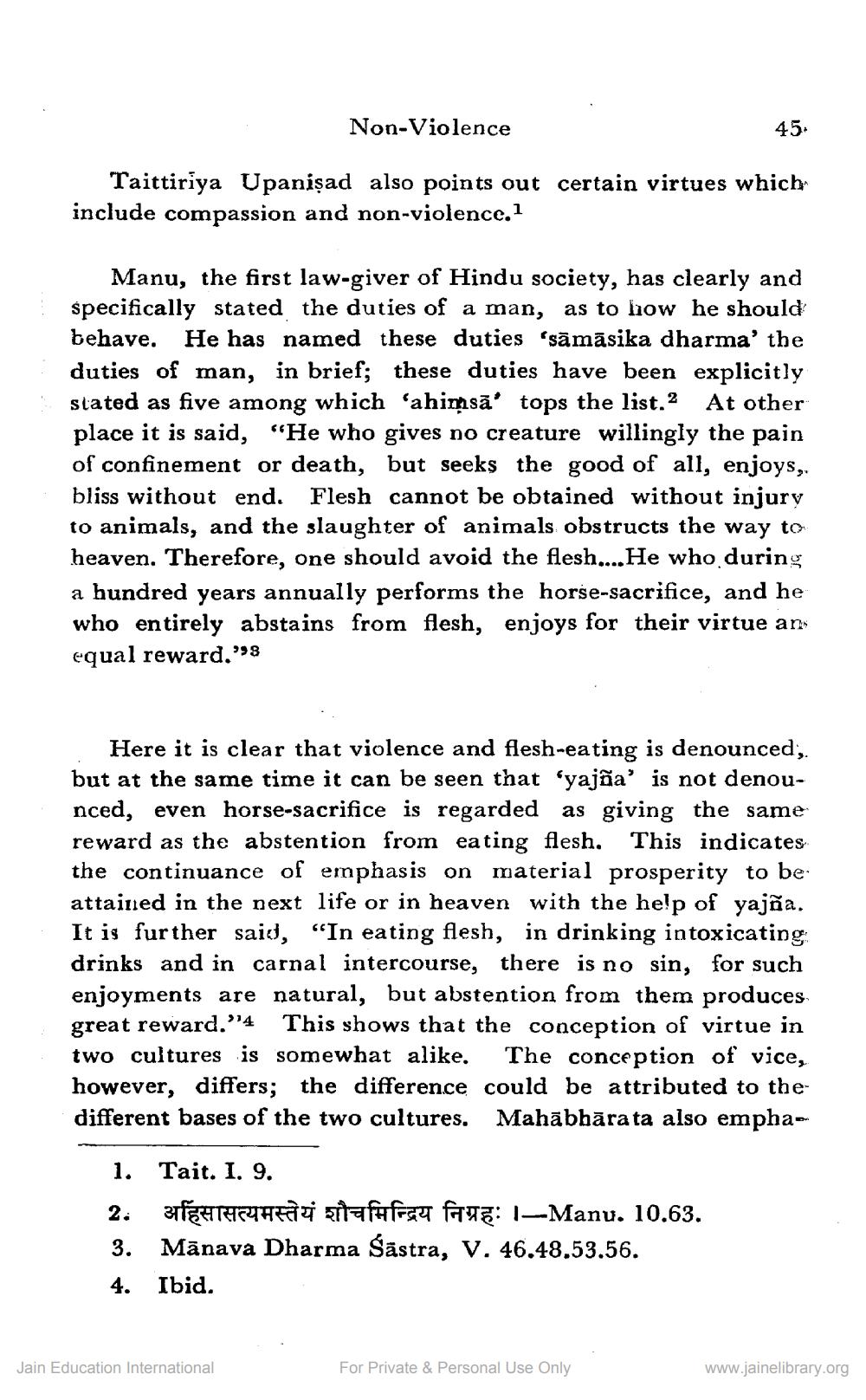________________
Non-Violence
45.
Taittiriya Upanişad also points out certain virtues which include compassion and non-violence.1
Manu, the first law-giver of Hindu society, has clearly and specifically stated the duties of a man, as to how he should behave. He has named these duties 'sāmāsika dharma' the duties of man, in brief; these duties have been explicitly stated as five among which 'ahimsã' tops the list. 2 At other place it is said, "He who gives no creature willingly the pain of confinement or death, but seeks the good of all, enjoys, bliss without end. Flesh cannot be obtained without injury to animals, and the slaughter of animals obstructs the way to heaven. Therefore, one should avoid the flesh.... He who during a hundred years annually performs the horse-sacrifice, and he who entirely abstains from flesh, enjoys for their virtue an equal reward."
Here it is clear that violence and flesh-eating is denounced, but at the same time it can be seen that 'yajāa' is not denounced, even horse-sacrifice is regarded as giving the same reward as the abstention from eating flesh. This indicates the continuance of emphasis on material prosperity to be attained in the next life or in heaven with the help of yajña. It is further said, "In eating flesh, in drinking intoxicating drinks and in carnal intercourse, there is no sin, for such enjoyments are natural, but abstention from them produces great reward.”4 This shows that the conception of virtue in two cultures is somewhat alike. The conception of vice, however, differs; the difference could be attributed to thedifferent bases of the two cultures. Mahābhārata also empha
1. Tait. 1. 9. 2. BERTACHAFU stafafesta forma: I–Manu. 10.63. 3. Mānava Dharma Sastra, V. 46.48.53.56. 4. Ibid.
Jain Education International
For Private & Personal Use Only
www.jainelibrary.org




